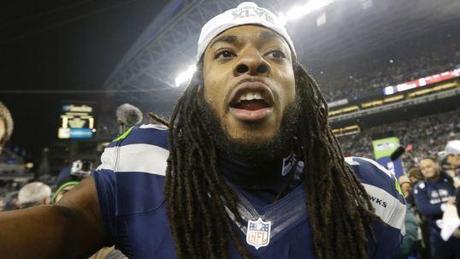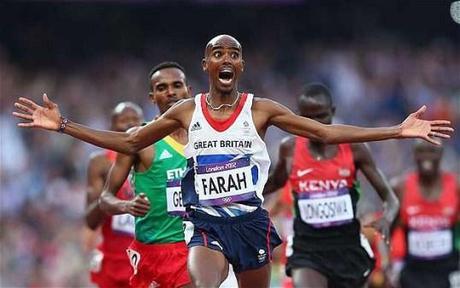It was an eventful, frustrating, saddening, and thought-provoking few days surrounding the Dr. Martin Luther King, Jr. holiday this past week. In some ways, these events can’t be distinguished from those which occur year round as our country continues to grapple with the struggle to recognize and address the racism still so vividly present all around us. At this point, I should make it perfectly clear that racism IS alive and well in the U.S. We aren’t in a “post-racial” society, and we haven’t “solved the race problem”. If you don’t agree with those statements, then you should probably just stop reading now, unless of course you are open to changing your beliefs, in which case you are exactly the person I am writing this post to today. Either way, everything I will say from this point forward stems from that basic and foundational assumption, so it’s important to start from a place of relative clarity.
In a matter of days, Garage Magazine editor Dasha Zhukova sat on a chair made from a Black woman, Sarah Palin decided to tell President Obama to stop playing the “race card”, and the interwebs blew up with racist sentiment and anger after Richard Sherman gave an impassioned post-game speech following the Seahawks victory over San Francisco. There were no doubt other incidents taking place, and frankly, I simply expect stories like this to show up in my news feed each day. Perhaps I need to subscribe to more stories about kittens or something? Anyway, let me quickly address the first two incidents quickly before moving on to the heart of the matter…or at least this post. I promise I’m going to bring it back to running.
1. Dasha Zhukova- I’d hadn’t even heard of this magazine before the story broke. What’s more, I certainly hadn’t heard of the “famous” artist the magazine cover was apparently mimicking. Either way, if you can’t see why this image is racist, them I’m sorry for you. The initial response was one of backtracking and excuses, before she finally came out and apologized…sort of anyway. The quick summary- it wasn’t her intent to offend anyone. Of course it wasn’t! It still happened.
2. Sarah Palin- At this point, I just wish the entire country would collectively turn their backs on her. Stop paying her money to speak, stop showing up with cameras to cover her events, and stop giving her false positive feedback. Even those folks that voted for her in 2008 (and don’t say “I voted for McCain”…they were a ticket, as in together, as in you voted for both) are rolling their eyes now. This most recent incident is just one of a long line of embarrassing foot-in-mouth moments. Unlike Ms. Zhukova, I actually think Palin probably does intend to offend. If I didn’t know better, I’d say she was auditioning to replace Ann Coulter. Either way, her comments make it brutally clear that we have SO MUCH work left to do in this country.

Photo Credit: ABC News
Now, on to the main focus, and the running connection my sometimes haphazard brain has made. In the days since Richard Sherman’s interview and the ensuing onslaught, numerous commentators, reporters, and bloggers have sounded off on the incident from various angles. Sherman himself weighed in the very next day via Sports Illustrated. Many thoughts welled up inside me, some of which I shared with friends via social media, and others that I kept to myself. Why did I keep them to myself?
Football is an intense game, and these players were battling (and I use that term intentionally) for the opportunity to go to the Super Bowl. Millions of people around the world watched the emotion and athleticism unfold for several hours. Why was everyone shocked when that intensity and emotion showed up mere minutes after the game ended and the Seahawks booked their ticket to the Super Bowl?
As sports fans, we’ve come to expect the humble (White) athlete thanking his teammates and (G)od after a hard-fought win. We expect the clichés to be uttered, eyes directed at the ground, almost embarrassed over recent success. We don’t expect an athlete to look directly into the camera, speak clearly, loudly, and boast about that success. We consider this to be arrogance, but is it really arrogance when it’s true? How “good” do you have to be before you can shout it from the rooftops? It may be a fleeting moment, but it’s still there. I wish I could say that the controversy ultimately stemmed from that shifting of the sports script, but I can’t.
You see, Richard Sherman is a Black man, and that brought out a host of additional reactions. He was called a “thug”, a “boy”, “kid” and a “n-word” repeatedly. The n-word was used mainly by ignorant fans, but the words “thug” “kid”, and “boy” showed up rather frequently in the media. I find it quite interesting that an athlete playing at such a high level in perhaps the most stereotypically masculine sport can still have his masculinity questioned. Try to tell me that race and masculinity/gender aren’t connected.
I could spend hours exploring the discourse around the n-word, Black male identity, race and class, or the commodification of (Black) male bodies in professional sports (among many other topics). However, I’m left with the reminder that talent, arrogance/confidence (fine line), and race don’t mix. You simply aren’t allowed to have all three, and you certainly aren’t allowed the opportunity if you aren’t White. That’s the script. That’s the power and control that comes with maintaining a system that privileges…well, me.
This is where the running connections comes in. I’ve reflected before on just how White the running community is, and I’ve commented on the privilege I carry with me every time I lace up my shoes to head outside. However, after watching Sherman’s interview, and reading all the responses, i was left with a question for myself. Why don’t I celebrate my own successes more vocally? I’m certainly not the “greatest” and I’m not going out and winning races, but I should still feel quite proud about my accomplishments thus far. Despite them, I’ve committed myself to quiet humility. I grew up watching sporting competitions and listening to the cliché, humble post-game interviews, and perhaps they taught me how to act. It didn’t hurt that most of those interviews were with athletes that looked like me.
I’m not alone though. I rarely encounter boastful runners, and even the posts I see on Facebook from folks about their running successes are softened by comments about not wanting to brag. You just ran your fastest mile ever. Brag! You just ran your first 5k. Brag! You just completed your first half marathon. Brag! You just knocked 10 minutes off your PR. Brag! You just ran your first, or tenth, of fiftieth, or one hundredth marathon. Brag! Shout loudly, emotionally, and look directly at me when you do it. I will get excited with you, congratulate you, and celebrate with you.
With the exception of Usain Bolt, the sport of running doesn’t have a loud, outgoing personality to put in front of the camera. Perhaps we need one? I want to see Meb interviewed after yet another victory, medals so heavy on his neck that he can’t stand up straight, and declare that he’s the greatest. I want to see Mo proclaim his place in history. I want to hear Paula Radcliffe assert her greatness in a BBC interview and catch the entire running community off guard.

What would have happened if Mo gave a similar interview? Photo Credit: The Telegraph
There is certainly an argument in all of this for sportsmanship, humility, and pride. I’m not arguing against these qualities in professional athletes, or any of us. In fact, I don’t anticipate changing my own actions or beliefs anytime soon. However, there needs to be room for emotion, energy, intelligence, and arrogance in the sports community and beyond. More than that, there needs to be a great deal of introspection on the part of those that would question Richard Sherman’s reaction simply because it didn’t adhere to the typical post-game script.
